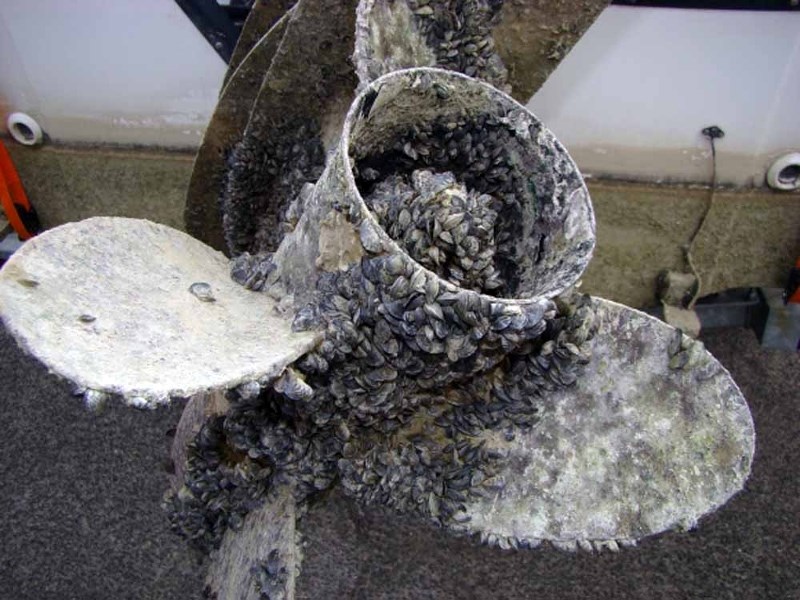As Canadian lakes become choked with invasive water species, Alberta is on heightened alert to prevent these species, such as quagga and zebra mussels, from clogging up its lakes and rivers.
“Right now, Alberta is 100 per cent mussel free,” said Chara Goodings, a spokesperson with Alberta Environment and Sustainable Resource Development. However, she noted the importance of maintaining this status. “If they were to get into any of our water systems, they are basically impossible to eradicate.”
A boat purchased in Ontario and making its way for Sylvan Lake for May long weekend was intercepted before entering the popular water body, with inspectors finding the boat contaminated with mussels.
The Great Lakes and Lake Winnipeg all have cases of mussels, while other points of concern for the province are Canadian snowbirds bringing back watercraft that have been in contact with infested water bodies in states such as Arizona or Nevada, she said.
She points out that with the Lakeland, including Lac La Biche, St. Paul and Bonnyville, mussels would affect tourism, with fishermen, boaters and other water recreationists feeling the effects of lakes destroyed by mussels’ presence.
“They will basically suffocate and drown all the fish,” she said. Without due diligence, water treatment plants, oil and gas operations that have water infrastructure and southern Alberta irrigation systems could all be clogged up with mussels.
It’s estimated that if mussels establish themselves in Alberta, the costs could be as much as $75 million in lost tourism dollars and costs of clogged pipes and canals. Manitoba is combating its mussel problem by dumping potash in Lake Winnipeg, but Goodings notes this could have harmful effects on the ecosystem, vegetation and other life in the lake.
New legislation came into effect this spring to control the spread of mussels, she said, noting that Alberta is taking the lead from American states that are mussel-free, by introducing mandatory inspections.
Inspection stations are set up across the province at main entry points into the province, with watercraft subject to sniffer dogs and inspectors trained in detecting mussels.
“Do not skip the inspection stations. They are mandatory. None of the inspectors are looking for anything else other than mussels,” said Goodings, adding items such as boat registrations, alcohol or illicit drugs are all not on the radar of inspectors. If mussels are found, the watercraft will get a thorough decontamination.
Owners should also clean their watercraft when it leaves water bodies, she said.
“People have to be really, really diligent – clean, drain and dry your boat,” she said. “It’s a good rule of thumb to always do.”



